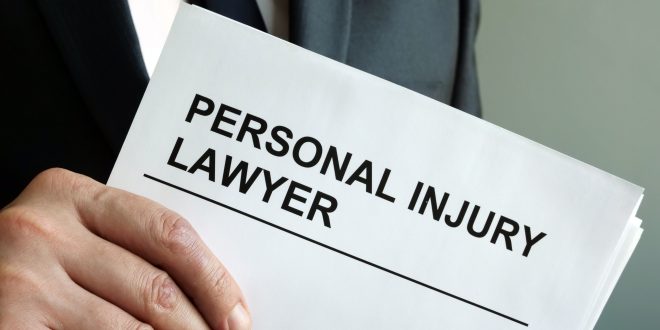Let’s face it—accidents happen. But when they happen because of someone else’s carelessness, you shouldn’t have to deal with the aftermath alone. That’s where a personal injury lawyer steps in. This guide is here to walk you through everything you need to know, from understanding what a personal injury lawyer does to how to pick the right one and what kind of compensation you might receive.
What Is a Personal Injury Lawyer?
A personal injury lawyer is your legal advocate when you’ve been hurt due to someone else’s negligence. Whether it’s a car crash, a slip in the grocery store, or a botched medical procedure, this type of attorney helps you get compensation for your injuries—think of them as your legal shield in a tough time.
Why You Might Need a Personal Injury Lawyer
Common Scenarios That Call for Legal Help
Imagine you’re rear-ended at a red light. Or you trip over an unmarked wet floor in a store. These everyday accidents can leave you with big medical bills, lost work time, and a lot of stress. A personal injury lawyer can make sure you’re not left footing the bill.
What Makes These Cases Complex?
These cases often involve insurance companies, mountains of paperwork, and tricky liability questions. It’s not always clear who’s at fault or how much your injury is “worth.” That’s why having a pro in your corner matters.
Types of Personal Injury Cases
Car Accidents
These are the most common types of personal injury claims. Whether you’re a driver, passenger, or pedestrian, an attorney can help determine who was at fault and how to proceed.
Slip and Fall Accidents
Also known as premises liability, these cases happen when property owners fail to keep their premises safe.
Medical Malpractice
Doctors are human too, but when they mess up and it leads to injury, the consequences can be serious. A personal injury lawyer knows how to navigate these high-stakes cases.
Workplace Injuries
Injured on the job? You might be entitled to more than just workers’ compensation.
Product Liability
If a defective product harms you, the manufacturer could be held responsible.
How to Choose the Right Personal Injury Lawyer
Experience and Specialization
Look for someone who specializes in personal injury law and has several years under their belt.
Track Record and Success Rate
Don’t be afraid to ask about past case outcomes. A strong win record speaks volumes.
Communication and Availability
You want someone who answers your calls and explains legal jargon in plain English.
The Personal Injury Claim Process
Step 1: Initial Consultation
Most lawyers offer free consultations. This is your chance to explain your situation and get a feel for the attorney.
Step 2: Investigation and Evidence Gathering
Your lawyer will collect medical records, police reports, witness statements, and anything else that builds your case.
Step 3: Negotiation and Settlement
Most cases don’t go to trial. Instead, your lawyer will try to reach a fair settlement with the insurance company.
Step 4: Going to Trial (If Needed)
If negotiations fail, your lawyer will take the case to court and fight for you in front of a judge or jury.
Costs and Legal Fees Explained
Contingency Fee Basis
Good news—you don’t usually pay upfront. Most personal injury lawyers work on a contingency basis, meaning they only get paid if you win.
Hidden Fees to Watch Out For
Always read the fine print. Ask about court filing fees, expert witness costs, and any other potential expenses.
Common Mistakes to Avoid in a Personal Injury Case
-
Waiting too long to file
-
Talking to the other party’s insurance company without a lawyer
-
Posting about your case on social media
-
Not seeking medical help right away
How Long Do You Have to File a Claim?
This is called the statute of limitations, and it varies by state. Typically, you have 1 to 3 years from the date of the accident to file a claim. Miss that window, and you might be out of luck.
What Compensation Can You Expect?
Medical Bills and Expenses
From ambulance rides to surgeries, your lawyer will aim to recover all your medical costs.
Lost Wages and Future Income
If your injury keeps you from working, you can claim lost income—and even future earnings if the injury is long-term.
Pain and Suffering
This is a bit harder to calculate, but courts recognize that trauma isn’t just physical.
Real-Life Case Studies
Case Study 1: Car Accident Victory
After being rear-ended, Sarah suffered chronic back pain. Her lawyer secured a $150,000 settlement covering medical bills, lost income, and pain and suffering.
Case Study 2: Slip and Fall Justice
Mike slipped on an icy sidewalk outside a business. He broke his wrist and missed months of work. His lawyer helped him win a $75,000 settlement.
Final Thoughts
Accidents can flip your life upside down in seconds. But with the right personal injury lawyer by your side, you’re not just a victim—you’re someone taking control and fighting for what’s right. Don’t try to do it alone. Get the help you deserve and focus on what really matters: healing.
FAQs
1. Do I really need a personal injury lawyer?
If your injuries are serious or the case is complex, a lawyer can make a huge difference in the outcome.
2. How much does a personal injury lawyer cost?
Most work on contingency, so you only pay if you win.
3. How long will my case take?
It varies. Some settle in a few months, while others go to trial and can take over a year.
4. What if the accident was partially my fault?
You may still be entitled to compensation, depending on your state’s comparative negligence laws.
5. What documents should I bring to my first meeting?
Bring medical records, accident reports, photos, witness info—anything related to your case.
 My Blog My WordPress Blog
My Blog My WordPress Blog



